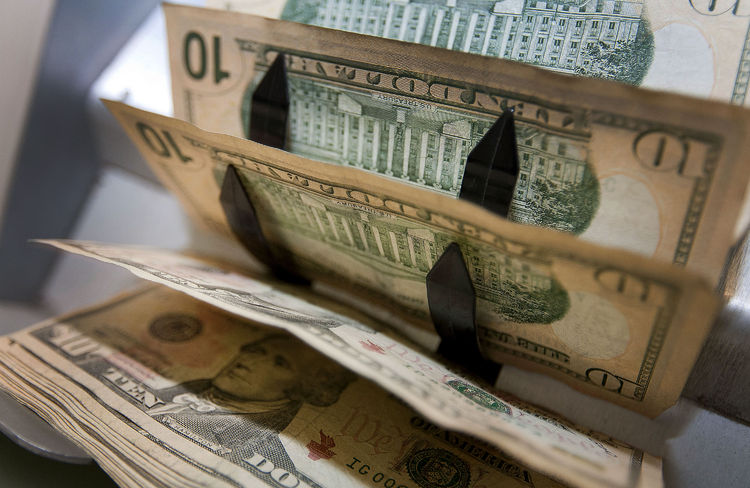- Nigeria’s Debt Rose by N4.76tn in 2016 – DMO
Nigeria total debt rose by N4.76tn in 2016, the Debt Management Office has disclosed.
The DMO disclosed this in its 2016 Annual Report and Statement of Accounts obtained by our correspondent in Abuja on Wednesday.
According to the office, Nigeria’s debt as of December 2016 stood at N17.36tn, up from N12.6tn a year earlier. This reflects an increase of N4.76tn or 37.74 per cent within a period of one year.
The significant increase, according to the DMO, is mainly in the domestic debt component and is attributable to additional issuance of debt securities to fund the 2016 budget deficit and the refinancing and redemption of matured securities.
The DMO explained that the increase in borrowing could be looked at from the deficits contained in both the 2015 and 2016 budgets in relation to the Gross Domestic Product.
Thus, the deficit contained in the 2016 budget reflected 2.14 per cent of the GDP, while that of 2015 reflected 1.09 per cent of the GDP.
The report stated, “The total public debt outstanding as of end of December 2016 was N17.36tn compared to N12.6tn as of the end of December 2015. The significant increase was mainly in the domestic debt stock, which was attributed to additional issuances for the funding of the 2016 deficit and refinancing of matured debt securities.
“The domestic stock has continued to form a larger part of the total public debt stock since 2012. The bulk of the stock of external debt continued to be in the long-term category.”
It added, “The increase in public debt stock was due to additional issuances for funding of the 2016 budget deficit at a larger fiscal deficit of 2.14 per cent of GDP compared with 1.09 per cent in 2015, and refinancing/redeeming matured securities, as well as the depreciation of the naira against the dollar a result of the liberalisation of the exchange rate system.
“The external debt was $11.41bn or 20.04 per cent, while domestic debt was N13.88tn or 79.96 per cent. The domestic debt stock comprised securitised Federal Government of Nigeria debt of N11.06tn or 63.7 per cent as of December 2016 and domestic stock of N2.82tn or 16.26 per cent for the 36 states and the Federal Capital Territory.”
Given the high cost of servicing local debts, the DMO indicated that the Federal Government intend to borrow more from external sources in order to rebalance the ratio of domestic to foreign borrowing.
It said, “In 2016, the government continued to rely on borrowing mainly from multilateral and bilateral sources on concessional terms to finance public development programmes, by addressing critical infrastructure needs, and rebalance the total debt portfolio, so as to achieve the optimal debt portfolio composition of 60:40 for domestic and external debts, respectively in the medium-term.
“In line with the new debt management strategy, there would be a shift of focus to external borrowing, including the international capital market, as a way of diversifying government’s funding sources, reducing debt service costs and creating opportunities for other domestic economic agents to access external financing.”
The report stated that the stock of external debt by remaining maturity was mainly long-term, adding that the increase in net inflow of funds was largely on account of additional disbursement from multilateral and bilateral sources.

 Naira4 weeks ago
Naira4 weeks ago
 News3 weeks ago
News3 weeks ago
 Education4 weeks ago
Education4 weeks ago
 Social Media4 weeks ago
Social Media4 weeks ago
 Economy4 weeks ago
Economy4 weeks ago
 Investment4 weeks ago
Investment4 weeks ago
 Dividends4 weeks ago
Dividends4 weeks ago
 Business3 weeks ago
Business3 weeks ago





























